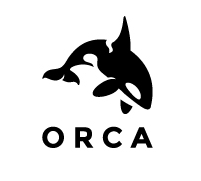Capitalism is a mode of production that formed by consuming other modes of production (regions which generally had more capital and usury control where they were highly developed for the time period) in the areas which constituted the main population centers and developments of civilization throughout history up until one millenia ago. West Asia, India, and China. Since then Europeans have engaged in a campaign of suffering so massive it threatens to extinguish not only ways of life but forms of life, entire damn categories of lifeforms.
Can I get a translation on this
Removed by mod
I see that mindset in mega-corps, but at the smallest of scales… one can wash a car or fix a bike and add value to (and thus grow) the system, which logically means it’s not closed/finite.
You just showed the system of value goes beyond making new products… But it is still finite, there will be only so many cars to wash (or more accurately, people willing to pay to get their car washed) or bikes that can be fixed.
It can be a big systems but it is finite
I’m sorry, it’s difficult for me to follow your logic, but I really appreciate your time in responding. I know at one time there were zero bikes, now there are more than zero, and I suspect more will be created… same with money, so I don’t understand how that is finite.
For discussion, perhaps it would be easier to reduce the complexity. In a capitalist system, if I own a fruit tree in an ideal climate then not only can it be duplicated, but either it will produce value by itself, or I will by picking its fruit. AFAICS this added fruit is more value, and the system has grown. Further I can then use this fruit to trade for bike repair or car washings. Is that not right?
There are only two ways of producing “value”. You either extract resources from the planet or you use labor to enhance those resources. The value is in the problems solved by the finished product.
Capitalism requires that capital is invested in the manner which produces the most profit. Thus infinite growth.
There is not an infinite amount of resources or labor. The fruit tree extracts nutrients from the soil and requires water to be added.
I know at one time there were zero bikes, now there are more than zero, and I suspect more will be created…
Correct but, there cannot always be more bikes… At some point there may not be demand for more, or materials run out or become too expensive… Taken to the extreme, you cannot produce more bikes forever
For discussion, perhaps it would be easier to reduce the complexity. In a capitalist system, if I own a fruit tree in an ideal climate then not only can it be duplicated, but either it will produce value by itself, or I will by picking its fruit.
Again, globally we may produce x billion tons of fruit this year… Maybe a few million more next year… Can we always produce more fruit (more as in a greater number than last year) forever?
Think longer term. Let’s go with that Fruit analogy. If you have a fruit tree in ideal conditions and begin growing more, eventually you will hit conditions that are not ideal. You can make them more ideal, you can buy more land that is ideal with the fruit proceeds. But eventually you will run out of land where it is possible to grow fruit trees. The supply is now limited. But before that, you will hit a point where people no longer demand the fruit, and your fruit is not worth the upkeep of your orchards.
So you increase the price to try and reach parity before you farm all the land, and you keep a store back for droughts and other problem periods. (Companies like DeBeers store back diamonds to hit this point artificially without risking a drop in demand)
Now imagine every person is trying to grow as many fruit trees as possible. That land runs out a lot faster and the saturation point is reached faster. The point where it makes sense to grow more trees is hit a lot sooner.
Advertising is another form of artificially raising demand. If you think you are hitting an equilibrium you have to start trying to convince people that your product is special and better than the other guy’s product.
Ultimately, the system is finite because land is finite, demand is finite, and people are finite. You can’t expect eternal growth in a finite system.
Removed by mod
It is the way we do it! :-P
Removed by mod
a capitalist society without growth is a failed society that will quickly be overthrown. It absolutely depends on growth, what incentive is there to invest capital otherwise?
Removed by mod
… ok? and? a system that requires infinite profits in a finite world is still stupid as fuck
Removed by mod
when it comes to an entire economic system that has the final say on how EVERYBODY ON THE ENTIRE PLANET LIVES THEIR LIVES FROM START TO FINISH?
yeah it’s fucking terrible
Capitalism specifically incentivizes seeking maximum profit, which also means increasing profit growth at all costs. Finance and speculation, inherent to capitalism, further pushes and necessitates further expansion to cover the average costs of the gambling and speculation. You have to remember recessions and depressions are not always contractions in the economy, they are usually just caused by less than “necessary” amounts of growth.
Removed by mod
Many capitalists are losing their investments when the economy shrinks though, even if some benefit. The system as a whole needs growth, as all the propertied are expecting to continue accumulating constantly, as physical resources dry up, and workers can hardly be exploited any more.
Removed by mod
It literally is though. In the middle ages would you have said “it’s not all feudalism, there’s actually some merchants too!”
So the current global market, as counted by GDP isn’t capitalism?
an economic and political system in which a country’s trade and industry are controlled by private owners for profit.
Oh, wait, you’re right. China’s socialist, so not the whole international system. Any given imperialist country still relies on growth to keep capitalism alive, though.
I think they’re referring to a common growth projection strategy used in modern capitalism which is basically whatever number we made last year + X% is our goals for this year and if we don’t make that growth then it’s considered a failure and now we have to lay people off.
No capitalist is ever okay with doing just as well as last year, or recognizing that last year was an extraordinary circumstance that gave us blockbuster sales and it isn’t necessarily repeatable.
It may not be the textbook definition, but it’s definitely a trait of modern capitalists.
The closed, finite system we are referring to is of course Earth. Capitalism requires expansion, but what do you do when you cannot expand further?
Capitalism requires expansion
It actually doesn’t, Capitalism works just fine in a closed system with finite resources. In fact it may be the best system in those circumstances. What doesn’t work is whatever in the fuck you just described is called. It’s absolutely happening and it absolutely doesn’t work.
As an economic system I’ve long maintained that Communism is a fantastic idea but the “Fully Automated Luxury Gay Space Communism” that many people envision simply won’t be possible until we actually reach the state of post scarcity, until then we’re left assigning limited resources in our closed system.
In the meantime our Governments need to get the Capitalists of the type you described, let’s call them Greedsters, back in line and I’m actually not against them using “Capital” (lol) punishment to make that happen.
As long as there is a system where money is literally power, corruption will always take hold.
As long as there is a system where anything is power corruption will take hold. Want food and only that group over there has any? Well, now they’ve got the power. Do you make clothes and that guy over there wants some? You have the power. Resource scarcity leads to power, power leads to abuse, abuse leads to corruption.
The only way the cycle is broken is for nearly everything to be accessible to nearly everyone nearly all the time. That, in a nutshell, is “Fully Automated Luxury Gay Space Communism” and the only way it can be achieved is by reaching a true post scarcity society.
Huh, i just realized where I’m commenting. Hi Socialists!
Removed by mod
How?
Removed by mod
Removed by mod
If it isn’t capitalism then I would argue it’s a direct consequence of the incentives it sets up. When a venture is primarily owned by investors whose only interest in it is a return on investment, sooner rather than later, it sort of sets up exactly what I described does it not?
Maybe the words I should have used were “unfettered capitalism”?


Removed by mod
While technically true in theory, I was pointing out how in practice people tend to implement it differently. It doesn’t help that almost every irl system that people describe as “capitalist” is not pure - e.g. the UK (& the USA in the era of 50s-60s) are a mixture of socialist policies & capitalist ones, like there can be “public” (socialism) schools funded by taxpayer dollars and controlled by the government side-by-side along with “private” (capitalist) schools that aim to provide a different experience (usually higher-end but oftentimes something else like a more religious affiliation). So the “pure capitalism” theoretical model does not seem to have much irl practical application, without adding all of those extra features that while not mandatory in the theory, seem to almost always be used in practice.
You’re not describing socialism, socialism is when the workers own the means of production. You’re describing capitalist government programs.
Right, it is quite a stretch, I get it. Citizens pay taxes and vote thereby have extremely diluted control over the means of production for schools, as opposed to private schools where they control it by means of their dollars going towards whichever one they choose (causing them to compete for that privilege). It’s an extremely watered-down form of socialism existing inside of an other capitalist-dominated society, but the main point is that whatever it is / whatever words are used to describe it, the goal of it runs counter to the goal of capitalism to make profits, and instead just benefits the populace directly (many caveats aside, like how schools are funded in large measure from local taxation, causing a segregation effect where the rich tend to congregate together and thus have good schools whereby the poor must also congregate together, out of whatever is leftover, and thereby have lesser quality schooling - but that aside, within a given school district, the aim is usually for the children to be taught equally without regard for ability to pay, though heavy caveats exist there too e.g. supplies, lunches, etc.).
Anyway, I cannot defend the OP meme, I was only trying to point out what looks to have been the POV behind it.
That’s just capitalism. It’s absurd to define capitalism as only capitalism absent government intervention when the government has always existed on their behalf (as long as the system’s been in place).
Expand.
It’s also not a closed, finite system because it relies on the extraction of resources and labor from outside of the imperial core.
sadly the earth is a finite system except for inputting radiation and outputting entropy
Removed by mod
what’s that? is it an airplane? is it a rocket? no, it’s Captain Obvious !!
Here I thought it was based on the fact that humans are the worst and it is best to harness what little you can lest they take everything.
I don’t know what cancer has to do with a closed environment. More like a failed "ecosystem in a jar*.
The body of an organism is a closed environment. It can be seen as an ecosystem of lots of different cells that live with in this environment. Cancer is just a mutation that allows some cells to replicate and spread through their environment in uncontrolled fashion.
In abstraction, chemotherapy is the idea of “have you tried turning it off and on again” for the immune system.










